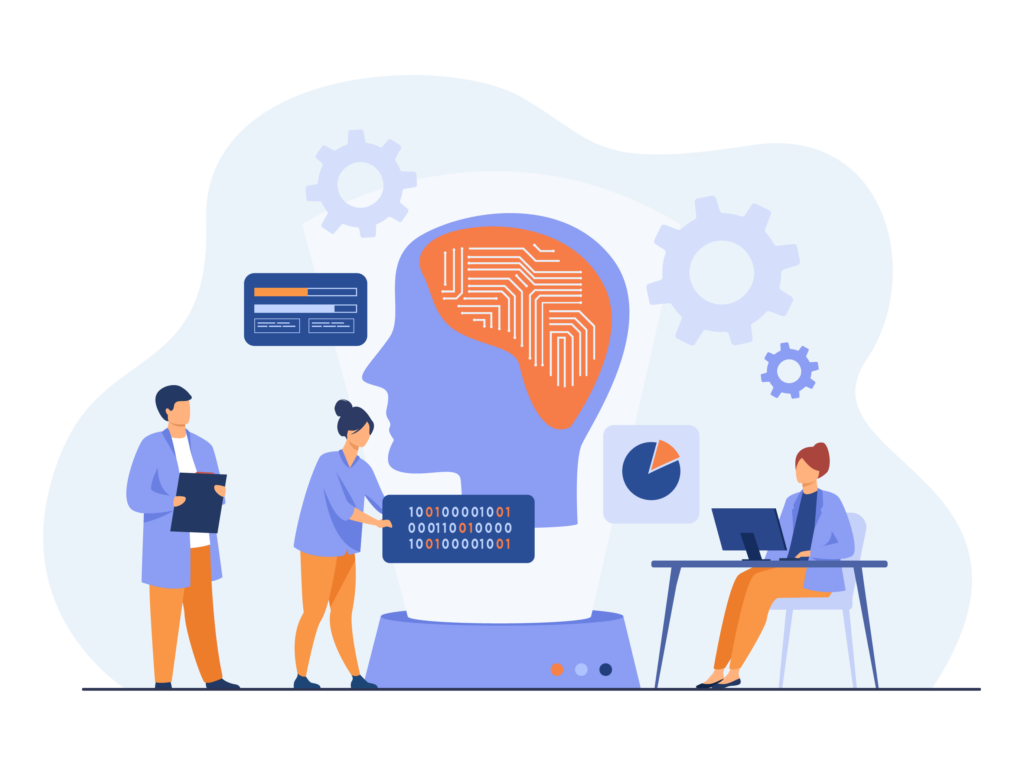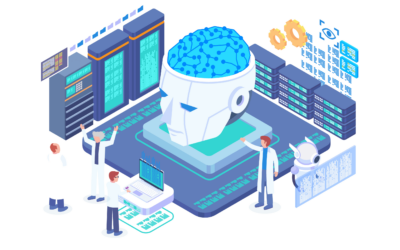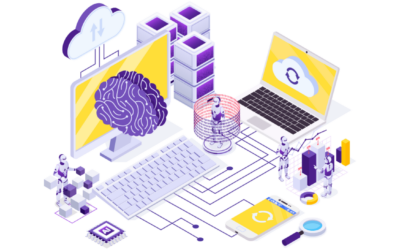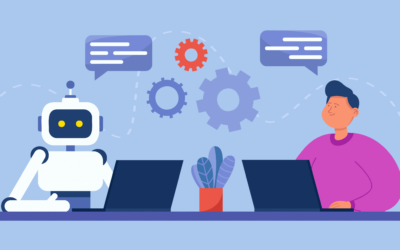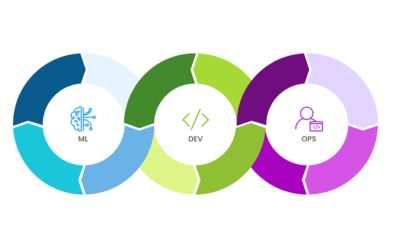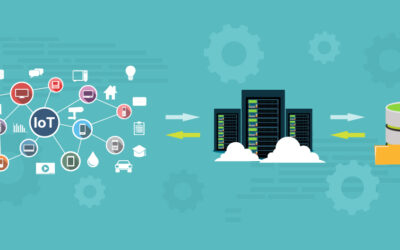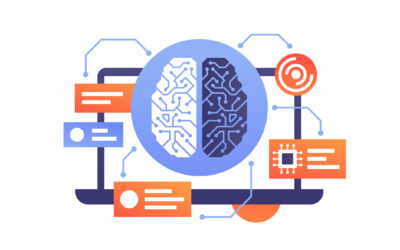AI capabilities are attained through an evolving journey where teams learn to use data and implement machine learning algorithms (built as software) to make faster and better decisions.
Organizations are generating a lot of data yet only some are profiting from it. So they must build the infrastructure to manage data and create AI solutions that solve business problems in order to become market leaders.
AI Skill Set
Many organizations don’t have the right people or team with the data and ML skill set that you can trust to create business value. Others are not ready and lack ML engineering culture and business practices or the mechanisms required to advance in the AI journey.
An AI partner can play a key role in bridging the skill set gap, augmenting teams, and accelerating the adoption of AI and its integration into business functions across the organization.
The AI Transformation Approach
AI consultants can help assess the organization’s stages, or maturity level, for exploring opportunities and the feasibility of projects, including designing a transformation approach that fits the client’s goals.
Initially, organizations work with prebuilt models and limited AI use cases as data sources are restricted or in siloes as data processes are being created. Once the business starts to build AI solutions, they improve their skill set and data access management capabilities.
AI consultants help organizations develop core standards (for consistency) and technical data practices that improve analytics and security capabilities needed to build trust and prove ML cases’ value to stakeholders.
As organizations evolve, they start using machine learning models that are linked or aligned to strategic business goals. Once machine learning is seen as a companywide initiative, it can be applied across other business lines or functions.
AI Teams
AI consultants help clients create collaborative and cross-functional teams. They promote the creation of specialized centralized teams with analytical and ML skills to help build use cases with domain-specific or subject-matter experts within the client organization. AI teams and analytics teams experiment and learn to deal with complexity and share their knowledge across functional or product teams.
Data science teams with capabilities are inserted into functional teams to ensure the technical standards are met and to help create specific ML models for product development teams.
AI teams follow best practices and go through a hands-on training program or learning path (upskilling staff) aligned with the organization’s AI use cases. Teams are also rotated in projects to help master ML techniques.
AI teams provided by a third-party consultant help keep up with the latest technologies and speed up the acquisitions of ML capabilities. Agile leadership creates the right environment, team structures, and organization model to drive AI innovation.
Agnostic AI Solutions
AI consultants promote agnostic AI solutions and ready-to-use products/services whenever available, prioritizing resources, creating consistency in their approaches and tooling, and focusing on tailoring solutions to business needs.
Data Management Enables AI Adoption
AI adoption initiatives work on creating consistency in tools, techniques, and data management practices. In addition, standardizing technologies and processes allows for reusing data assets and artifacts—a critical aspect of maintaining an ongoing efficient process and keeping costs under control.
AI consultants work with teams to implement a data warehouse or data lake as a single data source, allowing sharing of features across functional areas and using centralized tools.
ML models, tools, libraries, and reusable components are accessible or shared with other organizational teams, giving AI capabilities and computing power to process data pipelines.
Agile teams create ELT and ETL pipelines from many data sources and create the datasets to build custom ML models.
AI consultants work in building an integrated ML platform with unified resources to support ML projects across the business.
MLS Best Practices
Machine learning systems development and operations teams (MLOps) work together across the ML lifecycle to handle unique complexities and continuously operate them in production.
MLOps teams establish MLOps best practices and DevOps practices to support systems infrastructure and ML platforms. An ML engineering culture works to unify development and operations as well as automate and monitor the lifecycle steps.
Building a repeatable and reliable ML pipeline is a fundamental practice of MLOps teams that requires managing many complex elements and a rigorous CI/CD process.
AI Consulting — Specialized Knowledge
Some organizations operating in specific business contexts may need more resources and time to build ML capabilities and may opt for partnering with an AI consultant.
Krasamo is an AI consultancy organization focusing on the construction of data infrastructures, standardization of data management processes, and data quality that allows sharing data across the organization securely, all in support of the development of successful AI solutions.
AI consulting engineers provide specialized knowledge and practices to help accelerate AI adoption. Learn more about how an AI team from Krasamo can help you address a specific use case and deliver value to your organization.

